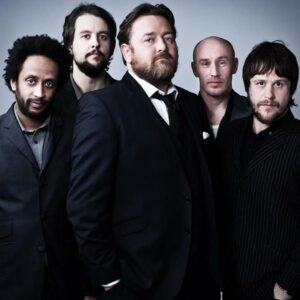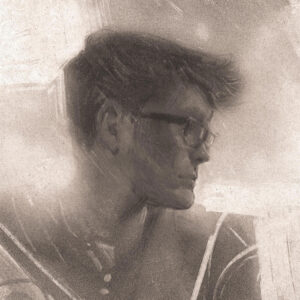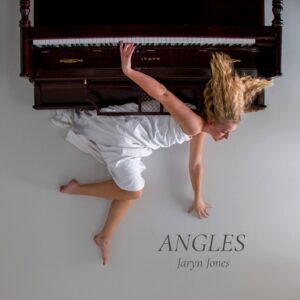It’s 2013 and Ben Howard is bathing in light.
Not necessarily the sunlight that falls like a warm blanket over his seaside town of Devon, England, but in light nonetheless. His first full-length offering, Every Kingdom (Island Records, 2011), has exceeded expectations across the industry, delighting critics, his label, awards panels, and most importantly, Howard himself.
Many artists would be content to bask in the glow of two recent BRIT Awards and a Mercury Prize nomination. Fortunately for the music world, Ben Howard is unlike most artists. Instead of enjoying the afterglow, he’s hard at work, meticulously constructing what will be the tracks on 2014’s I Forget Where We Were. It’s not all work, though – inspiration-seeking comes in the form of surfing sessions and duck-diving into books by beloved authors such as Graham Greene.
The new album marks a confident evolution from Howard’s previous releases. He’s added more Les Pauls and Telecasters, as well as a few critical, tastefully-chosen pedals to his arsenal. The album meanders down a beautiful and demanding road before arriving at track 8 – the towering, ominous “The End of the Affair.”
Aptly named after the 1951 Graham Greene novel, the 7-minute track opens with sparse acoustic guitar in CGA#GFC, with a capo on 5 of the 6 strings, which immediately evokes a sense of vast possibility. In a feat of ingenuity worthy of Daniel Lanois and Phil Spector, Howard achieves the otherworldly reverb by placing his amplifier inside a piano, allowing the piano’s strings to shape the guitar’s notes. We don’t know where the path leads, but we know it is steep and we want to follow.
Lyrically, the song explores the theme of Greene’s novel, from the hopeless perspective of the empty-handed party in a love triangle. The first heart string is quickly and surgically removed during the (arguable) chorus, when Howard confesses:
Now I watch her running ‘round in love again
Now I talk about you when I’m with our mutual friends
The next 3 minutes introduces thoughtful breaks and nuanced layers of musicianship in their purest form. The spellbinding cello work of India Bourne and the atonal atmospheric guitar work of the Bond brothers could easily be misheard as a full, avante-garde orchestral section. The spaces between notes offer as much as the music does; beautiful, lush sonic meadows en route to the peak of a foreboding mountain.
Despite the beauty of the low-grade, peaceful 3-minute climb, something palpable is approaching.
That something – the summit of this mountain – arrives on-time at precisely 4:44. Gone are the meadows and the protected, breezy moments of the foothills. We are now in a storm of desperation and torment, and the path has disappeared. Again, what could understandably be interpreted as multiple synths, programmed pad effects, and many, many digital add-ons is, in reality, a tornado of Howard’s acoustic guitar, a Strymon Brigadier delay pedal (set to dotted 8), and a Strymon Big Sky reverb pedal. Harmonics and notes swirl and dive like purple martin birds protecting their nests. Howard lets the music do the talking for the next 3 minutes, vocally offering only the questions:
Well this is it? This is desert. And what of him?
Before all of the chaos culminates within one concise, heart-shuddering question:
What the hell, love?
And with that last gasp of dying hope, any healthy, beating heart should lay severed, strings and all, at the depths of the listener’s soul.







